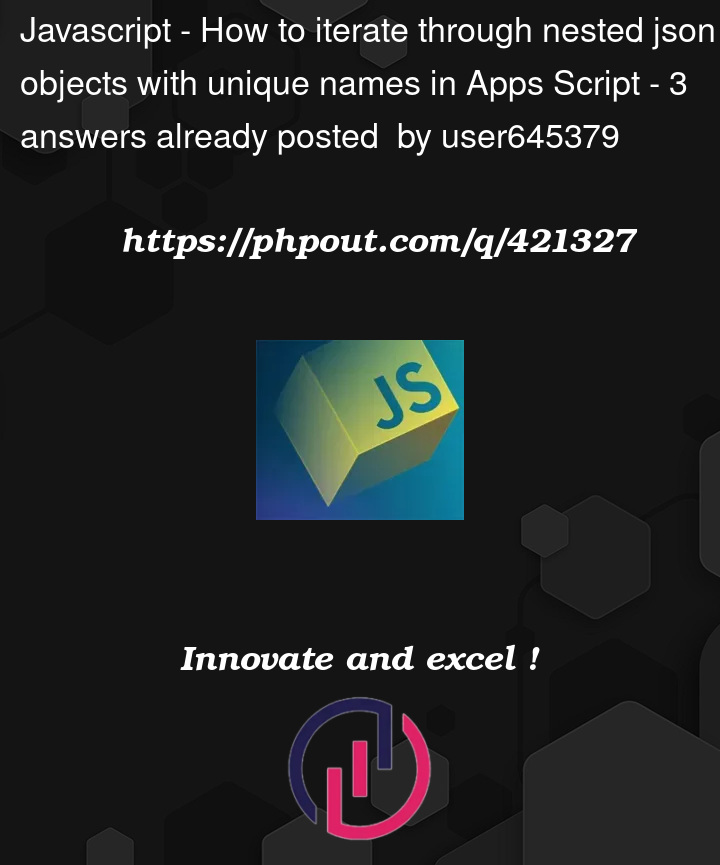Given a json file with nested objects (not arrays) like:
{
"data": {
"UniqueName1": {
"name": "Bob",
"title": "the man"
},
"UniqueOtherName": {
"name": "Joe",
"title": "the myth"
},
"SuperUniqueName": {
"name": "Steve",
"title": "the legend"
}
}
}
Using Apps Script, how do I iterate through each unique sub-object to read the common properties therein?
function importLoLChampions() {
var files = DriveApp.getFilesByName("championFull.json");
if (files.hasNext()) {
var file = files.next();
var jsonString = file.getBlob().getDataAsString();
var jsonParsed = JSON.parse(jsonString);
//I can do this:
Logger.log(jsonParsed.data.UniqueName1.name);
Logger.log(jsonParsed.data.UniqueOtherName.name);
Logger.log(jsonParsed.data.SuperUniqueName.name);
//But I want to do this:
for(var champion in jsonParsed.data )
{
Logger.log(champion); //ok so far cause it's treating champion as a string
for(var championData in champion) //Doesn't work
{
//Champion is treated as a string value,
//i.e. seems to have lost object awareness
Logger.log(championData.name); //output: null
}
}
//Or this:
for(var i=0; i<jsonParsed.data.length); i++)
{
Logger.log(jsonParsed.data[i].name);
//Fails, treats jsonParsed.data[i] as a string
//and not an object
}
}
I’ve been struggling with this for a few hours, can’t find a good answer.
Is there a way to retrieve jsonParsed.data[i] as an object?
Or another way to step through each sub-object to access the keys/values within?




3
Answers
To traverse nested JSON objects with distinct names in Google Apps Script, recursion can be employed effectively. Below is a detailed guide:
Sample JSON
Code for Iterating Through Nested JSON
The following code demonstrates this process:
Explanation:
for...inloop to go through the keys of the JSON object.hasOwnPropertyto confirm that you are not accessing properties from the prototype chain.Output:
You can use a
for...ofstatement withObject.entries()to iterate over the collection of objects. And you can also leverage destructuring assignment to make the things a little more readable.Given:
Then you can do this:
Note: Google Apps Script now supports modern Javascript, so try to use
letand/orconstinstead ofvar,console.loginstead ofLogger.log, etc.One of the earlier answers noted:
If that’s the case, then a function I use often, might make this simpler.
Applied to your object it would yield:
And then you could use the resulting array of path/value pairs to log output or to build something else.